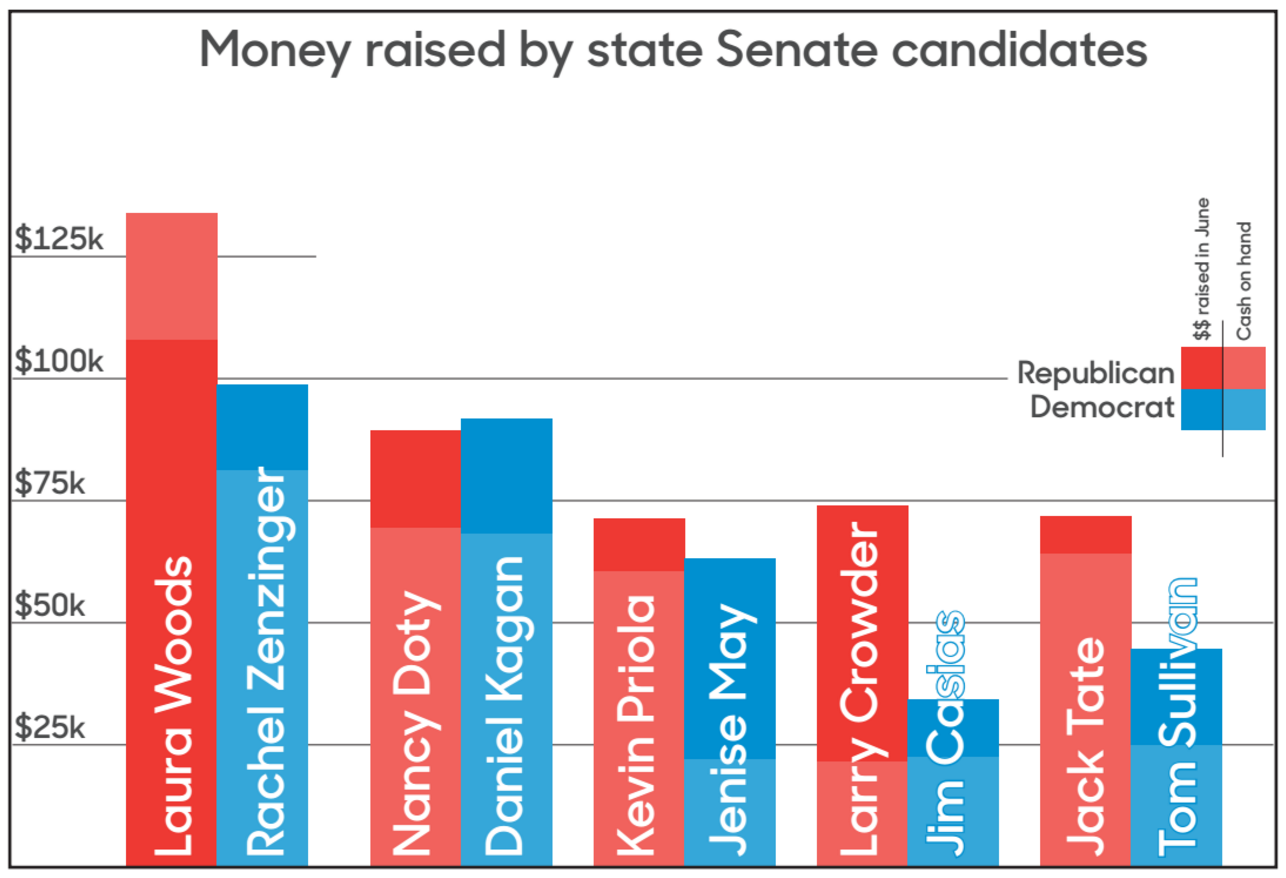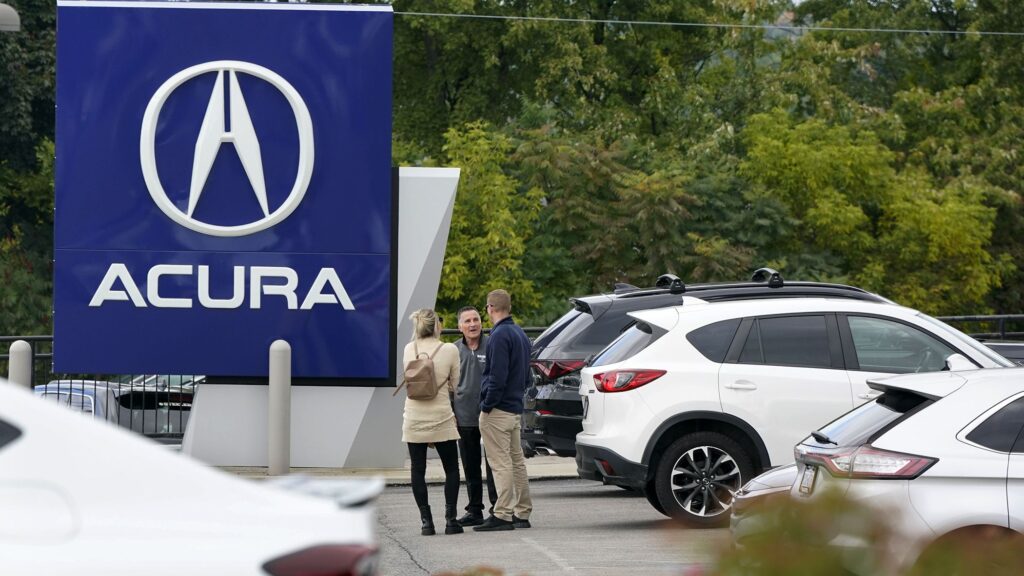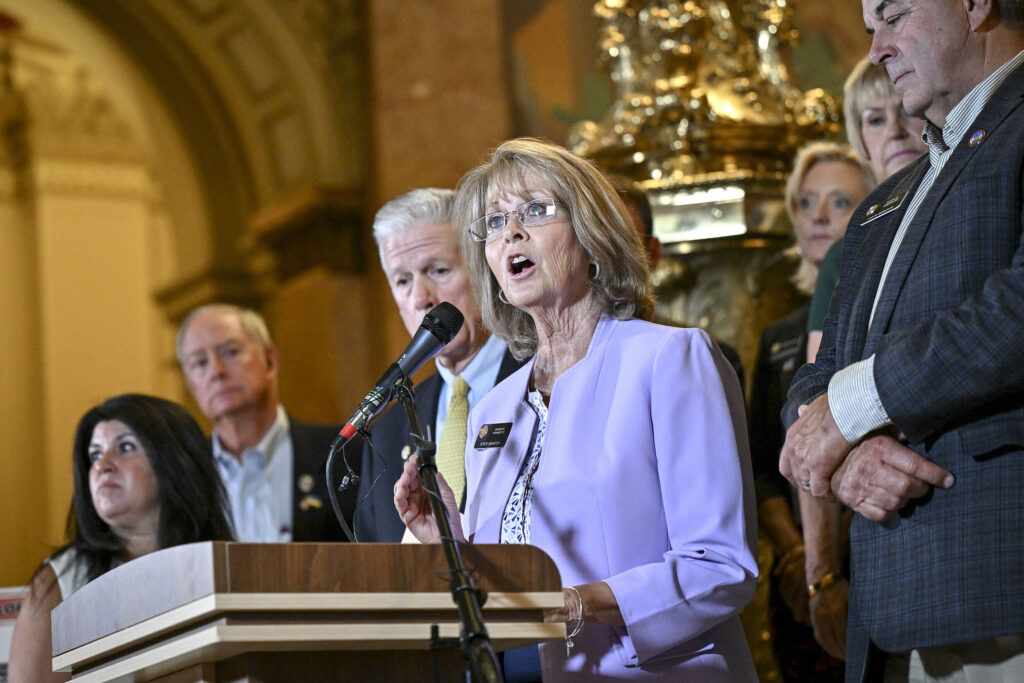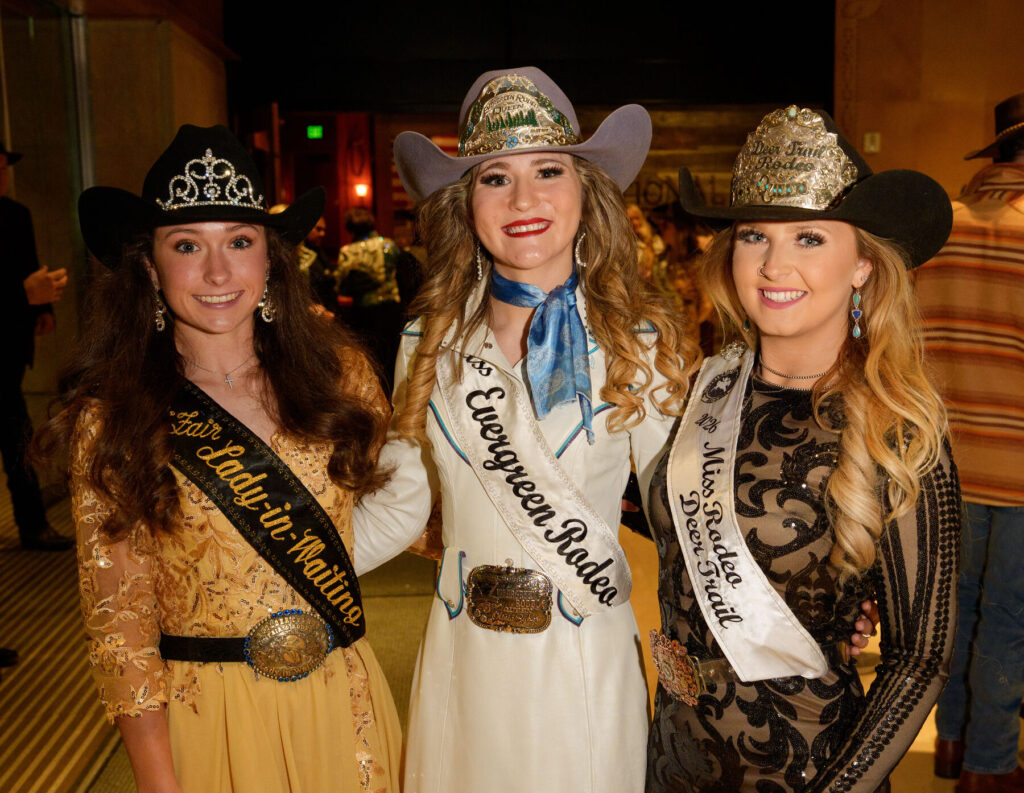In crucial battle for control of state Senate, all eyes turn to general election swing seats
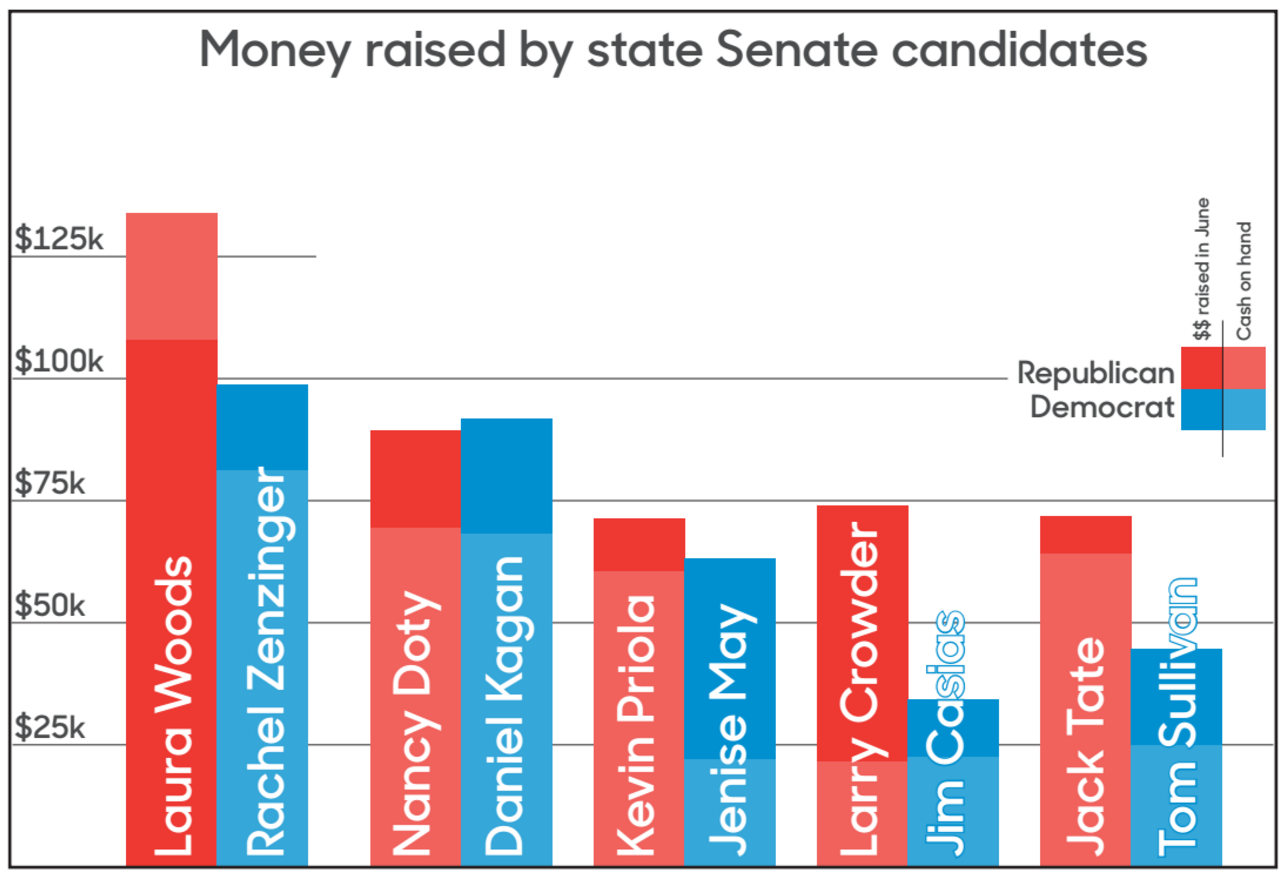
The eyes of politics watchers in Colorado this year are trained on the state Senate, the only lever of legislative power Republicans in the state control and one they have worked to great effect, forcing Democrats to the negotiating table on big issues and killing bills in committee that may well have passed into law if they had just made it to the Senate floor, where Republicans outnumber Democrats by merely one vote.
Democrats feel confident that they will retain their House majority in a presidential election year, when typically greater numbers of registered Democrats vote, and they’re feeling good too about their prospects for taking control of the Senate, given the fractured state of the national Republican Party and the experienced and/or energetic candidates they’re fielding for the chamber’s swing seats.
Republicans say they feel confident because they’re also running strong experienced candidates, many of them incumbents or sitting lawmakers, and because they’ve previously defeated many of the Democratic candidates running in key races.
There’s little disagreement about which Senate seats are in play. There are six top swing-seats to watch. Here’s a primer – the first in a general election season series on those seats – ranked from most-swingy to least-swingy:
Senate District 19, now represented by a Republican, is a Front Range metro-area seat set northwest of Denver against the foothills.
The seat is held by Arvada resident Laura Woods, a Christian conservative activist who ran her own court-reporter business for decades. Woods was a leader in the movement in 2013 to recall state Sen. Evie Hudak, a Westminster Democrat who was targeted on the right mostly for supporting gun-control laws with other Democrats in the wake of the Aurora Theater shootings.
Woods is being challenged by Democrat Rachel Zenzinger, a former Arvada city council member, whose work experience has focused on education. Zenzinger was appointed to represent District 19 when Hudak resigned ahead of the recall effort. Zenzinger served out one legislative session and then ran for the seat and lost to Woods in Republican-wave year 2014.
Woods has served in two legislative sessions and has to run for reelection because the district’s 2012-2016 term has ended.
This year’s race – essentially the third race for the seat in four years, including the recall action – is unfolding in swing Jefferson county, where political and ideological battles around flashpoint issues such as education and energy development have been waged on a regular schedule for years. The district will be a hotbed of door knocking, lawn-sign staking and street-side crowd campaigning now until November.
Woods is leading the money race. She reported raising $107,703 in June, with $134,021 cash on hand. Zenzinger reported raising $98,733, with $81,206 cash on hand.
Senate District 26, currently a Democratic seat, is a mostly south-suburban Denver district that includes Aurora, Centennial, Cherry Hills Village, Englewood, Greenwood Village, Littleton and Sheridan.
Term-limited Linda Newell, a Littleton resident, stunned Republicans when she won the seat in 2008, before 2010 redistricting shaded the district purple.
The race to fill the seat this year pits scrappy Republican Arapahoe County Commissioner and Littleton resident Nancy Doty against equally scrappy Democratic state Rep. Daniel Kagan of Cherry Hills Village.
They’re both familiar to voters. Doty served as Arapahoe County clerk before being elected commissioner. Kagan has served eight years as representative for House District 3 and has repeatedly survived close reelection races. He won in 2014 by 445 votes.
The money race is virtually tied. Kagan in June reported raising $91,850, with $68,405 cash in hand. Doty reported raising $89,437, with $69,503 cash on hand.
Senate District 25, currently represented by a Democrat, is an Adams County district just north of Denver that juts east into the plains.
Mary Hodge, current SD25 senator, is term limited. State Rep. Kevin Priola is battling former state Rep. Jenise May for the seat.
Priola, a Republican from Brighton, works in his family’s real estate and greenhouse businesses and has mostly sponsored legislation that aims to reduce regulations and trim back government bureaucracy.
This year, he was attacked for hypocrisy by Democrats and progressive activist groups when he voted in committee against a parental leave bill after absenting himself to take one of his kids to a doctor’s appointment. It was the kind of move opposing political campaigns are built upon – a slow pitch, high and inside, that Alan Franklin at lefty ProgressNow smacked hard.
“It’s just another example of the right’s hostility toward the ‘family values’ they claim to champion,” said Franklin in a release. “When families are in conflict with corporate special interests, the ‘party of family values’ leaves the families of Colorado out in the cold.”
Democrat May is reportedly working to out-hustle Priola on the ground in the district, motivated by her past electoral experience. May won election to represent House District 30 in presidential election year 2012, but then lost the seat in 2014 by 106 votes to conservative Republican JoAnn Windholz.
Like Priola, May has created fodder for her opponent.
In 2015, she was a staff adviser to House Speaker Dickey Lee Hullinghorst, when she was met by Durango Herald reporter Peter Marcus with news that she had violated legislative rules by filing to run for the SD 25 seat while still working as a legislative staffer. May responded by fleeing the Capitol.
“I’m just going to go home,” she told Marcus. “I’m just going to close my candidacy. What else can I do? It’s a policy. I didn’t even know. I just found out … All I can do is say I left, what more?”
May came off as either scattered or scheming, and she was pilloried in the conservative press.
Priola in June reported raising $71,350, with $60,659 cash in hand. May reported raising $63,259, with $21,994 cash on hand.
Senate District 35, now held by a Republican, covers rural territory that stretches over 16 counties in the southern central and eastern reaches of the state.
The district is represented by Alamosa’s Larry Crowder, a man who wears a mustache and a Stetson and who won’t be bullied.
Crowder this year broke ranks with Senate Republicans to sponsor with Hullinghorst a hospital fee reclassification bill to free up money in the state’s general fund and secure future federal matching money for the state’s hard-pressed mostly rural hospitals.
Influential small-government group Americans for Prosperity attacked Crowder for his support of the proposal, but Crowder brushed off the oil-billionaire Koch-brothers-funded group with one of the year’s most memorable state politics tweets: “You hoonyocks at AFP want to pick a fight with me? Then get after it,” he wrote, followed by a series of tweets that were variations on this one: “All politicians have 2 choices. Side with the people or the special interests. Sorry AFP, I choose the people.”
But Democrats see Crowder’s district as favorable to the right kind of Democratic candidate, and they think they found one in Las Animas County Sheriff Jim Casias, a pro-gun rights former firefighter, miner and Trinidad police officer. Las Animas is a Democratic stronghold in the district, and the Casias candidacy may well bring out large percentages of voters there.
Crowder won election in 2012 by a few thousand votes. This year he is running campaign ads that appear regularly online. In June, he reported raising $70,862, with $20,738 cash on hand.
Casias reported raising $34,265, with $22,597 cash on hand. Cassias received $3,700 combined from the state Democratic Party and from funds run by legislative Democrats, including state Rep. Angela Williams, a candidate for state Senate, and outgoing state Sen. Rollie Heath from Boulder.
Senate District 27, now a Republican seat, curls up at the bottom of suburban Denver in Arapahoe County and is represented by Jack Tate, an engineer businessman. Tate served one term in the state House before being appointed to the Senate to fill a vacancy.
The district has been held by Republicans for years, but Democrats are betting big on newbie challenger Tom Sullivan. “He’s the right candidate at the right time,” they say.
Sullivan is a retired postal worker and a member of the state chapter of the AFL-CIO executive council and he’s running as a champion of the working class. He’s best-known in political circles, however, for the tireless work he embarked upon in support of “common sense gun violence prevention laws,” as he puts it, after his son Alex was killed in the 2012 Aurora Theater shooting.
Tate in June reported raising $71,816, with $64,132 cash on hand.
Sullivan reported raising $44,543, with $24,950 cash on hand. He drew $5,000 from the state Democratic Party in May and another $5,000 in June. He also nabbed a $4,000 donation in June from the state fire fighters union.
Senate District 8, now represented by a Republican, stretches from just west of the metro area all the way to the northwest border of the state.
Sen. Randy Baumgardner, from Hot Sulfur Springs, beat his 2016 Democratic opponent Emily Tracy, from Breckinridge, four years ago by 4,000 of 67,000 votes cast, even though Libertarian Party candidate Sacha Weis likely drew votes that year from Baumgardner.
But this year, Tracy enjoys the dedicated support of longtime moderate Republican officials from the area, Al and Jean White, who both served in the District 8 Senate seat in the past and who oppose the hardline-right attack politics that won the seat for Baumgardner.
Baumgardner in June reported raising $22,805, with $15,796 cash on hand. Tracy reported raising $16,844, with $17,771 cash on hand.
